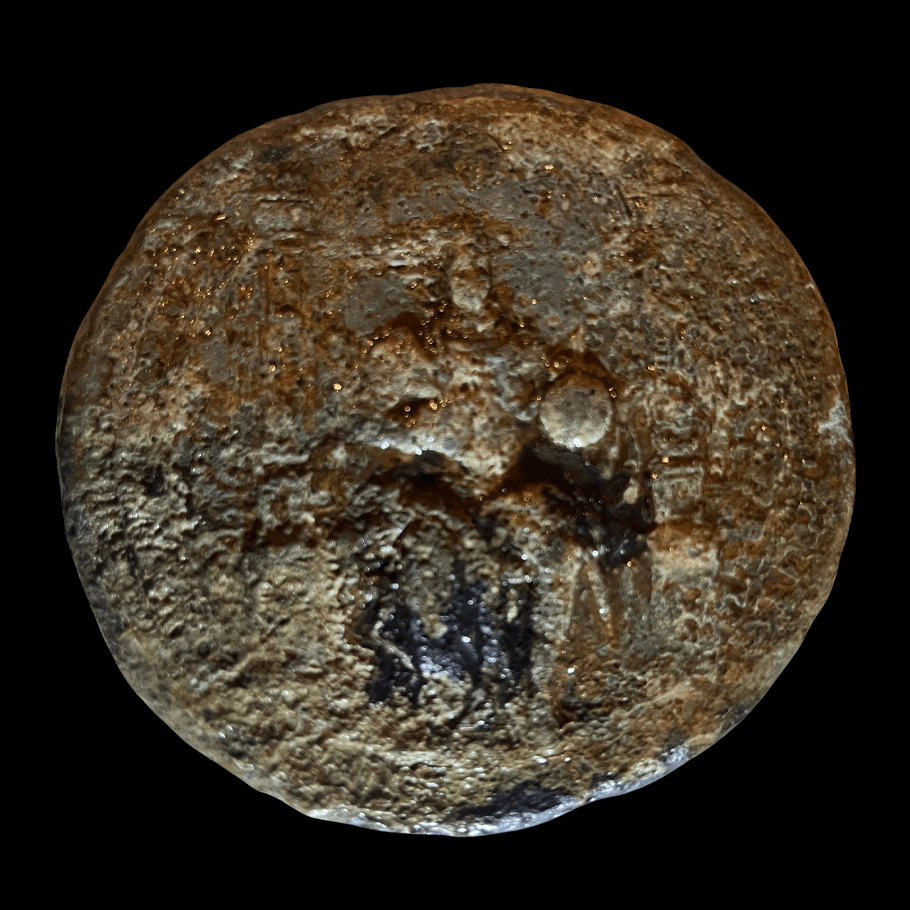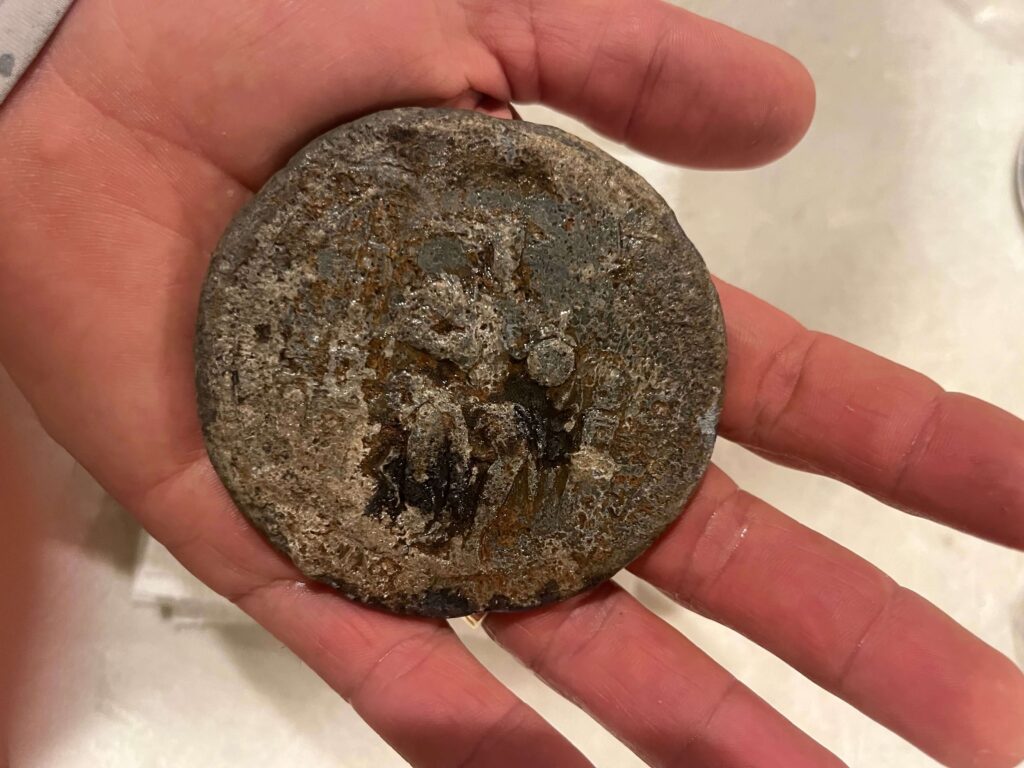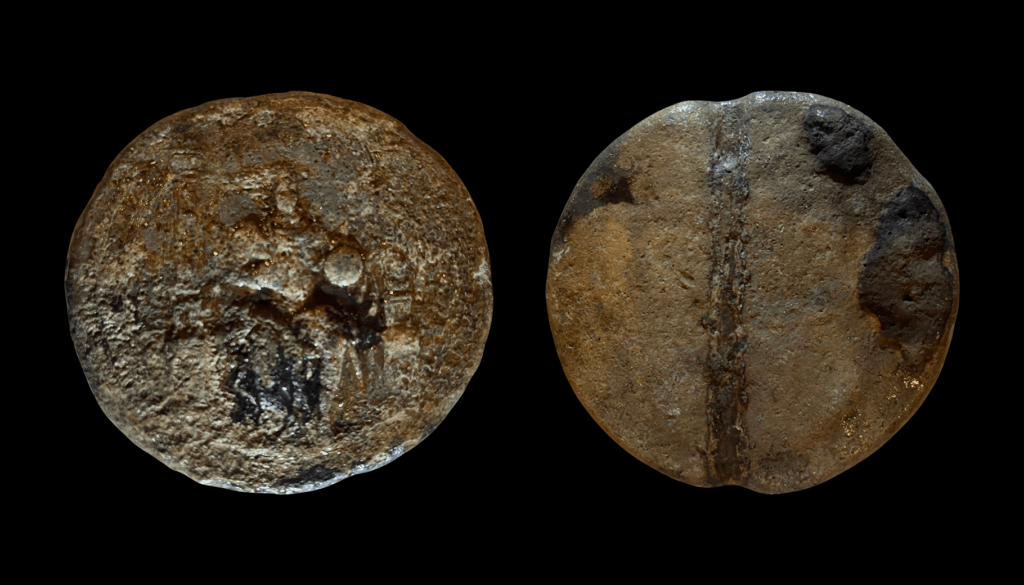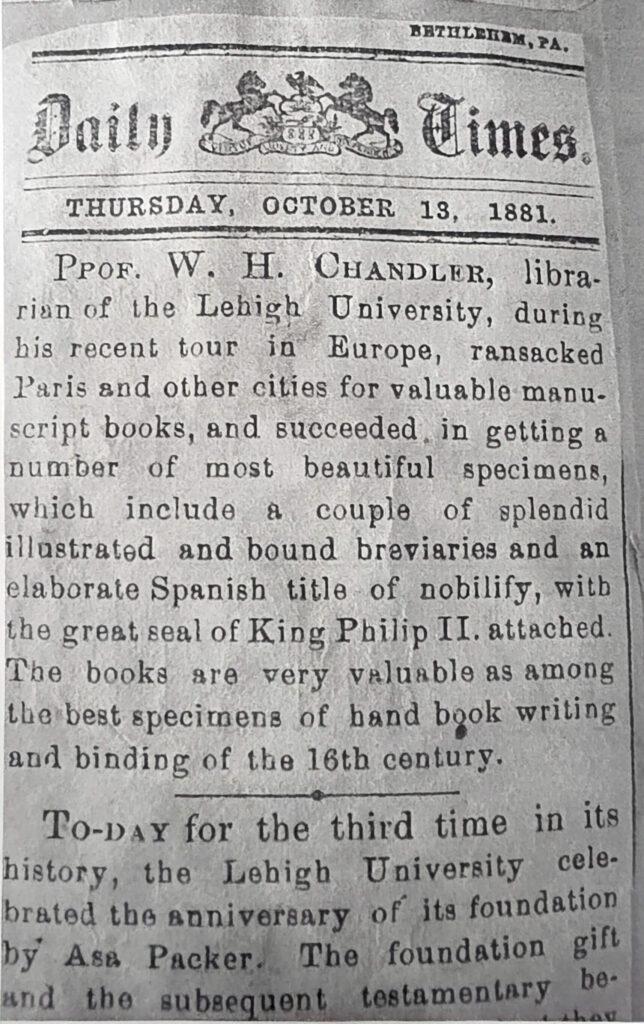Our featured Treasure of the Month for September is an item that was recovered earlier this year at the 1715 Fleet wreck site known as the “Cabin Wreck” by Captain Mike Perna (Member #217) and his crew operating the recovery vessel, Mighty Mo.
Made of lead and approximately 4” in diameter, this item appears to have the image of a seated figure with all the trappings of royalty. The reverse has no identifying features, save a vertical line through the center of the object.
Not knowing exactly what this item was, Mike Perna and Sal Guttuso (Member #226), Operations Manager for 1715 Fleet-Queens Jewels LLC, took it upon themselves to do some research. Along the way, they found the image of a similar item located in the Special Collections, Lehigh University Libraries. This item was listed as a “Royal Document Seal. Phillip II, King of Spain. (circa 1556).”
In order to gain more information on this subject, Lehigh University was contacted, and we were put in touch with Alex Japha, MSLS, Digital Archives and Special Collections Librarian, who graciously provided additional images and information about the piece in the Library’s collection. A number of those images are seen below.
A comparison of the Royal Document Seal in the Lehigh University Libraries Collection and our featured treasure reflects a remarkable similarity.
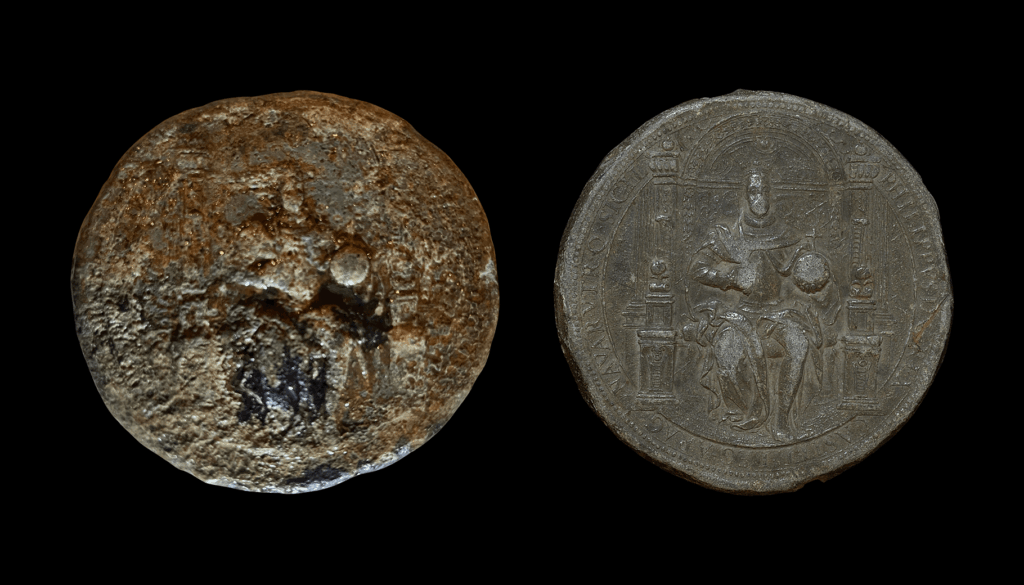
The Spanish document seal (above right) has the image of the king on the front. The text reads: PHILLIPUS D. REX CASTIL. MPG ARAG NAVARUTRQ SIGIL.
The comparison of the reverse is likewise revealing.
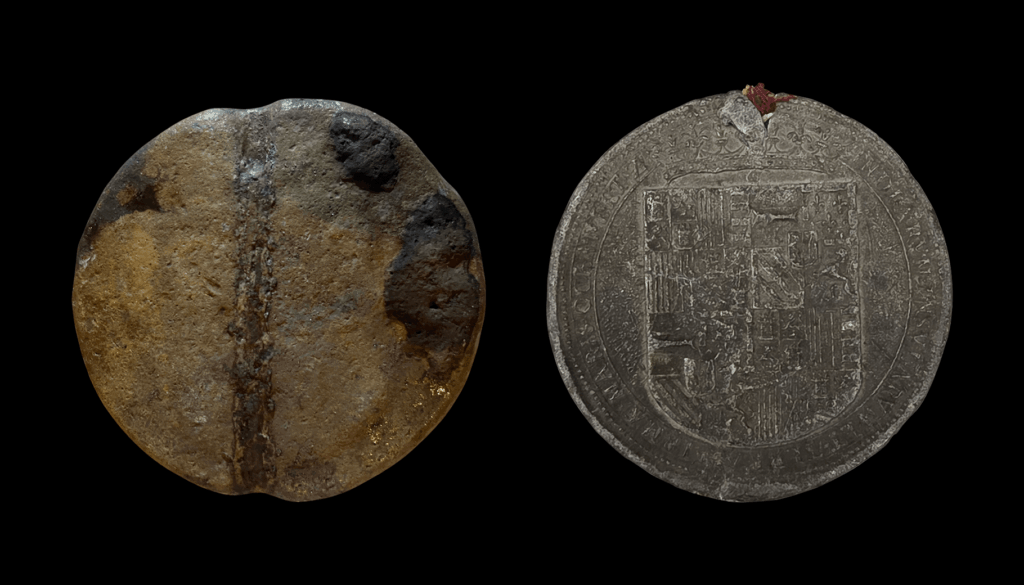
On the reverse of the Spanish document seal (above right), the insignia is a crown and shield containing the coats of armsInsignia of a family or country, containing specific figures and colors and passed along through hereditary lineage. of Castile, Aragon, Navarro, and Sicily. The text on the reverse reads: INDIARUM INSULARUM ET TERRA FIRMAE MARIS OCEAN FETA INDIA.
Although not as clear, the faint outline of a shield can be detected on the back of our featured treasure, which corresponds to the shield on the back of the Lehigh University piece.
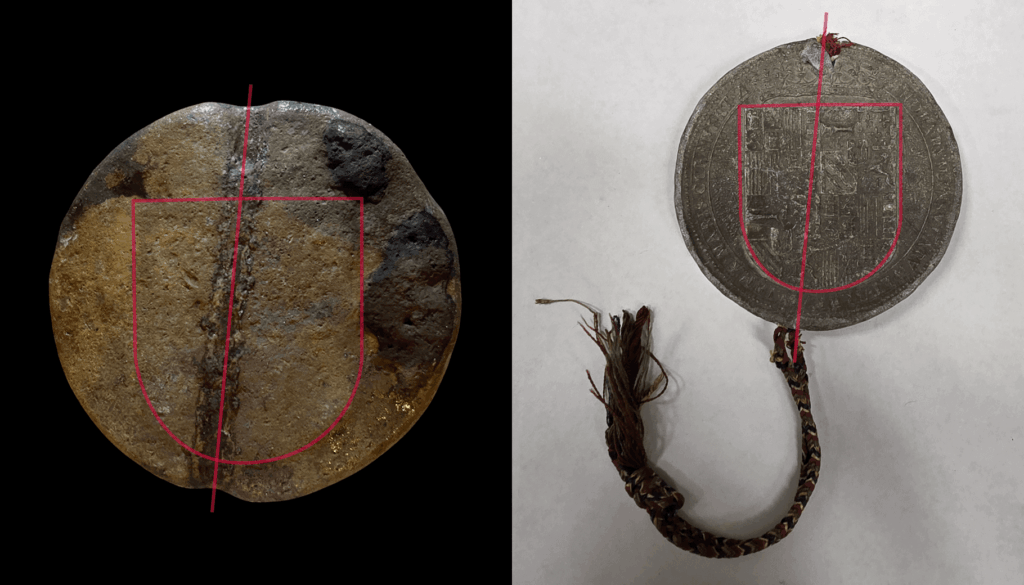
Also on the Lehigh University piece, a string traverses a channel that extends almost vertically along the back of the seal, which is covered with a thin veneer of lead, which is part of the shield. Compare that to the channel that can be seen on our piece. The channel, although more visible due to years of erosion, follows a similar path.
According to an 1881 article provided to us by Lehigh University, the seal was acquired for Lehigh by Professor W.H. Chandler while on tour in Europe. There he is said to have succeeded in getting “an elaborate Spanish title of nobility, with the great seal of King Philip II attached.”
Royal seals were used by monarchs on official documents to signify that a document was authentic and had royal approval.
Special thanks to Mike Perna, Captain of the Mighty Mo Recovery vessel, Sal Guttuso, Operations Manager for 1715 Fleet — Queens Jewels, LLC, and Alex Japha, MSIS, Digital Archives and Special Collections Librarian, Lehigh University, for their help in providing background information that was used in the preparation of the text for this article.
Images courtesy of 1715 Fleet — Queens Jewels, LLC and Special Collections, Lehigh University Libraries, Bethlehem, PA.
